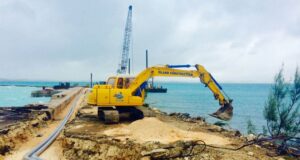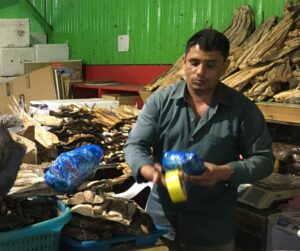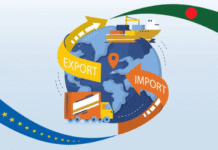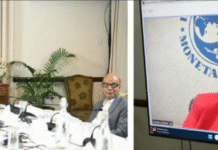August 9, 2023

The nation of Maldives is an archipelago in the Indian Ocean. The Maldives has welcomed migrant labor, from which it has reaped significant benefits.
Abdul—not his real name—is a construction worker from Bangladesh. He works 16 to 18 hours a day laying bricks and doing masonry on a remote island 75km from Malé, the capital of Maldives. He is one of 140 construction workers building a 75-room resort hotel on the island, which was handed over to a Maldives developer.
There are 40 camp beds and five makeshift toilets that Adbul and his colleagues must share. He earns less than $1.40 per day (21.63 rufiyaa) for 16 hours of work, well below the minimum wage of Maldives, which does not cover migrant workers. Abdul and his colleagues have not been paid for two months. He is one of about 20,000 undocumented Bangladeshis currently working in the Maldives.
Labor migration plays a major role in the economies of South Asia, with profound effects on both source and destination countries. It involves millions of skilled and unskilled workers seeking employment opportunities beyond their national borders in pursuit of higher wages, better living conditions, and brighter prospects for their families. This cross-border movement fills workforce gaps in destination countries and generates substantial remittances that serve as a crucial source of foreign currency for countries of origin. Labor migration also fosters a complex interplay of economic, social, and cultural influences that contributes to the region’s overall growth and development, transforming societies and facilitating the exchange of knowledge, skills, and cultures across borders.
The Maldives has welcomed migrant labor from the region, making it an exception in South Asia. Bangladesh, Nepal, Pakistan, and Sri Lanka are all principally source rather than destination countries. The Maldives, in fact, has a significant dependence on migrant labor. According to the country’s Bureau of Statistics, the nation’s labor force stands at 181,144, of which 177,585 are expatriates. This exceptional reliance on migrant labor has brought significant benefits to the Maldives economy, propelling the nation to a per capita GDP in 2023 of $36,358. But significant loopholes in the laws governing labor migration have resulted in irregular migration and the widespread exploitation of undocumented workers. According to research conducted by the Public Interest Law Centre (PILC), there is a high prevalence of exploitative practices such as wage theft, excessive work schedules, deceptive and fraudulent recruiting, and occupational safety and health violations that have led to injuries and deaths. The current system also significantly limits such basic workers’ rights as freedom of expression and association and the right to strike.
At this resort hotel project on a remote island in the Maldives, 140 construction workers share 40 camp beds and five makeshift toilets. There are 20,000 undocumented Bangladeshis currently working in the Maldives, often under exploitive conditions.
The exact number of labor migrants in the Maldives is unclear. According to the Statistical Yearbook 2020, from the Bureau of Statistics, there were 138,728 migrant workers employed in various sectors of the economy in 2020. This figure only includes documented migrant workers residing in the country. In 2021, the U.S. State Department estimated 169,000 migrant workers in the Maldives, consisting of 109,000 documented workers and 60,000 undocumented workers. The undocumented population is presumed to consist mainly of Bangladeshi and Indian men working in the construction and service sectors. The Bureau of Statistics’ Maldives Population Projections 2014–2054 anticipated that the resident foreign population would amount to 187,290 migrants as of 2022. This uncertainty over the foreign workforce is a serious structural problem for migrant labor in the Maldives that leaves individuals like Abdul invisible and vulnerable to unfair labor practices.
In the face of this complex challenge, civil society organizations have become important advocates for change. The Asia Foundation’s South Asia Governance Fund program, funded by the U.S. State Department’s Bureau for South and Central Asia Affairs, supports the work of the PILC and the Refugee and Migratory Movements Research Unit (RMMRU) of Bangladesh to develop policies to minimize the impact of irregular migration in the Maldives and stop the exploitation and unlawful detention of migrants.
With the support of the Foundation, the PILC and the RMMRU organized a track 1.5 dialogue in July between governmental and nongovernmental stakeholders. Diplomatic negotiations are typically classified into two tracks: track 1 involves formal negotiations among governmental representatives, while track 2 includes nongovernmental actors like think tanks, academics, and civil society organizations. A track 1.5 dialogue combines the advantages of both tracks and promotes inclusive and participatory decision-making. The track 1.5 dialogue held on July 17 and 18, 2023, brought together a delegation comprising researchers, members of the Bangladesh parliament, government officials and agency representatives from the Maldives and Bangladesh, and representatives from the private sector, the media, and the legal profession.
This Bangladeshi migrant, who works in a dried fish shop, has lived in the Maldives for nearly 12 years. (Photo: Md. Zakaria)
The dialogue spanned more than two days and generated wide-ranging debate and discussion that produced a consensus on three key issues: (1) Easing restrictions. Considering the demand for Bangladeshi workers in the Maldives, authorities there were asked to withdraw existing restrictions on formal migration. The Maldives government representative agreed to bilateral discussions with Bangladesh to ease those restrictions. (2) Strengthening laws and coordination. The Maldives has comprehensive laws and institutions to regulate the labor sector, but enforcement and coordination among ministries and agencies needs improvement. The Maldives representative agreed that policy correction is necessary to close these loopholes. (3) Enhanced collaboration. To control the flow of workers through irregular channels and combat trafficking, there is a vital need for better coordination between the authorities of Bangladesh and the Maldives. The dialogue reached a consensus that close coordination between the two countries will be key to addressing this issue, and laid the foundation for future bilateral discourse between the two countries.
The collaboration between the PILC and the RMMRU in organizing the track 1.5 dialogue on labor migration represents a commitment to addressing the issue. By joining forces, these organizations have pooled their expertise, resources, and networks, amplifying their voices and their influence. The synergy between these two organizations has attracted greater attention from governments and other stakeholders, leading to a more inclusive and comprehensive dialogue on labor migration to the Maldives.
This kind of collaboration, backed by strategic tools such as track 1.5 dialogues, has proven to be an effective tool for policy advocacy in South Asia. The PILC-RMMRU partnership has focused attention on the humanitarian aspects of labor migration, built trust among stakeholders, and amplified the voices of migrants like Abdul. Inclusive and participatory platforms like track 1.5 dialogues can develop solutions that are more comprehensive and sustainable, paving the way for positive change in addressing public challenges. As we move forward, continued cooperation between governments and civil society will be instrumental in creating a world where migration is approached with empathy, compassion, and pragmatism.
Md. Zakaria is a senior program manager and Bernard Vimanga is a program officer in The Asia Foundation’s South Asia Grants Program. They can be reached at md.zakaria@asiafoundation.org and bernard.vimanga@asiafoundation.org, respectively. The views and opinions expressed here are those of the authors, not those of The Asia Foundation.











